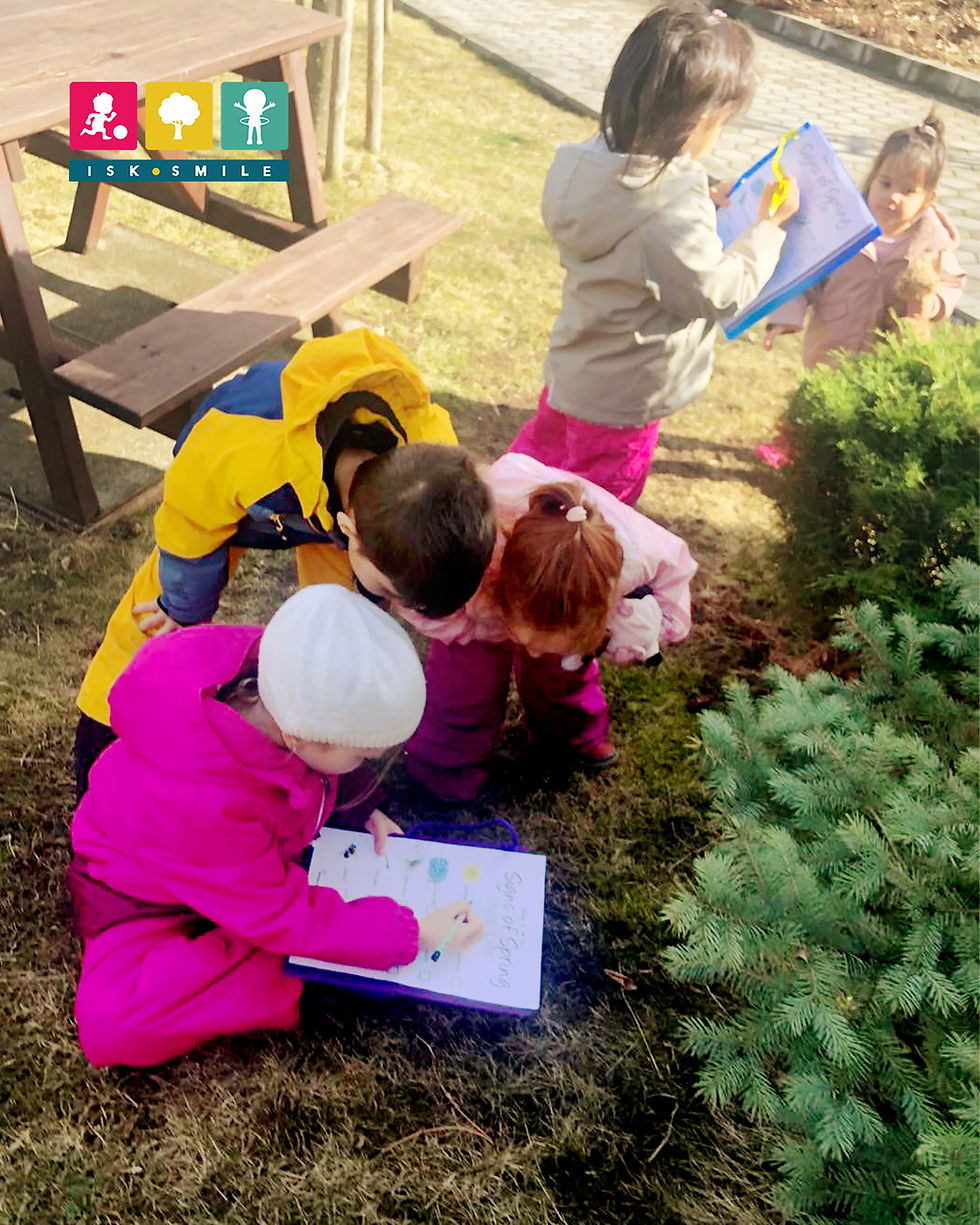Supporting Fine Motor Skills Development through Play
- Elina Cherkezova-Veleva
- Nov 11, 2024
- 3 min read

Fine motor skills are the foundation for numerous essential childhood milestones, from learning to write to buttoning a shirt or tying the shoe laces. These skills, which involve the coordination of small muscles, particularly in the hands and fingers, are critical for children’s overall development, self-care, and school readiness. ISK-Smile recognizes the importance of fostering fine motor skills early, providing a safe and enriching environment for children to explore these abilities through a diverse range of playful activities.
The Importance of Fine Motor Skills in Early Childhood
Fine motor skills contribute not only to physical abilities but also to cognitive development. Activities requiring the manipulation of objects, grasping, or balancing encourage children to develop spatial awareness and enhance hand-eye coordination. Research shows that well-developed fine motor skills are associated with improved academic performance, particularly in reading, writing, and mathematics, as these activities demand precise control of hand movements. Moreover, by mastering these skills, children build confidence and independence.
Play as a Tool for Developing Fine Motor Skills
ISK-Smile’s educational approach emphasizes learning through play, as play-based activities are a natural way for children to build fine motor skills. According to the American Academy of Pediatrics, play is critical to healthy brain development, helping children strengthen both motor skills and problem-solving abilities. At ISK-Smile, each activity is carefully designed to provide specific motor challenges in a fun and engaging way, making children’s development feel like play.
Building Skills Through Various Activities at ISK-Smile
1. Playing with Cubes and Building Blocks Building blocks and cubes are staples in early childhood classrooms because they require a variety of fine motor actions, such as grasping, stacking, and placing objects with precision. At ISK-Smile, children engage in building block play individually and in groups, which helps them practice spatial relationships, balance, and hand-eye coordination. Grasping and stacking cubes also strengthens the small muscles in their hands, preparing them for tasks like holding a pencil.
2. Nature Play Nature-based activities are another essential part of ISK-Smile’s curriculum. Using materials like pebbles, leaves, and sticks, children are encouraged to build, arrange, and explore different textures and forms. Such activities offer sensory-rich experiences that stimulate fine motor skills while allowing children to explore the natural world. Handling different sizes and shapes of objects from nature strengthens grip and control, which are vital for fine motor skill mastery.
3. Dancing and Singing with Hand Movements Rhythmic activities, such as singing and dancing with coordinated hand gestures, are also integral to fine motor development. Clapping to music or following along with hand movements helps children build hand-eye coordination and timing. Through playful singing and movement, children at ISK-Smile not only learn language skills but also develop coordination and bilateral control (the ability to use both sides of the body harmoniously).
4. Balancing on Tactile Discs Balancing on tactile discs engages children’s core muscles and refines their sense of balance and stability, indirectly aiding fine motor skills by improving overall control of movement. Balancing helps to strengthen their postural muscles, which support fine motor tasks. Additionally, tactile discs offer sensory feedback through different textures, which contributes to proprioceptive awareness—important for coordinating hand movements in relation to body position.
Through such and more targeted activities, ISK-Smile prepares children for the challenges of formal education by ensuring they have strong fine motor foundations. Studies confirm that motor skills, both fine and gross, are predictors of later academic success, especially in writing and math. By nurturing fine motor skills through play, ISK-Smile supports the cognitive and physical development of children, setting them up for a lifetime of learning.
At ISK-Smile, play is not just a means of enjoyment; it’s a purposeful tool for development. Through thoughtfully designed activities involving cubes, nature play, music, balance, and more, children develop fine motor skills in a way that feels effortless and fun. By integrating these practices, ISK-Smile ensures that children receive a holistic education that prepares them not only academically but also physically, helping them grow with confidence and skill.





Comments